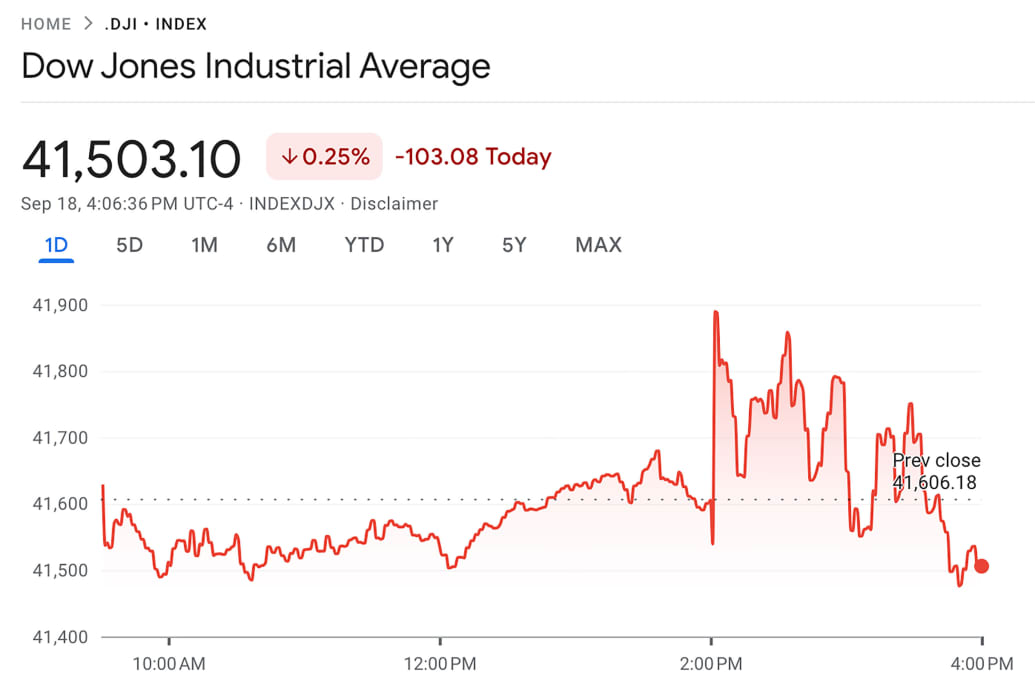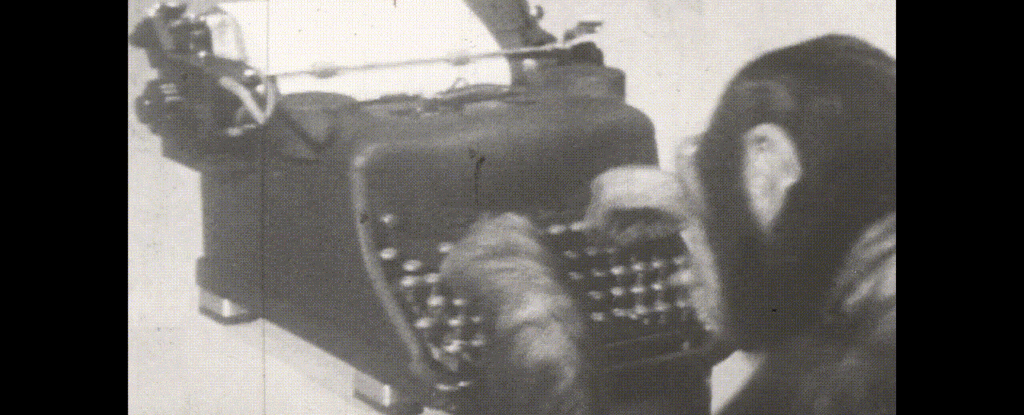
The US Federal Reserve cut its key interest rate by 0.5%, or 50 basis points, on Tuesday, putting it at the centre of a political storm.
Donald Trump was quick to say that the committee may be “playing politics” with its decision, given the proximity of the presidential election in November.
Asked about his reaction during a campaign stop in New York City, the former president said: “I think cutting that much shows that the economy is in very bad shape — assuming they’re not just playing politics. Either the economy is in very bad shape or they’re playing politics, or one of the two.”
Earlier in the day, the Federal Reserve cut its benchmark interest rate to 5.50% from 5.25%, setting short-term lending rates for banks at a range of 4.75% to 5%. Markets immediately rallied after the cut, the biggest since the 2008 response to the economic crisis as the Great Recession slammed the economy.
“The Committee has gained greater confidence that inflation is moving sustainably toward 2 percent, and judges that the risks to achieving its employment and inflation goals are roughly balanced,” the Fed said in a statement.
The cut is also the most politically charged move by a rate-setting body in recent history — because former President Donald Trump repeatedly called for keeping rates steady ahead of the November election.
Trump and his aides believe that lowering borrowing costs would benefit Vice President Kamala Harris’s campaign by convincing people of the strength of the economy and reducing concerns about inflation.

The Dow Jones closed lower on Wednesday after the Federal Reserve cut interest rates by half a percentage point, closing the day at 41,503.10.
Google Tracker/Screenshot Tool
Republican House Speaker Mike Johnson also praised the move in mild terms, calling it “good news for consumers,” but challenged its “somewhat suspect” timing.
“On election night? I don’t know. Consider me curious about that,” he said. CNN.
Both President Joe Biden and Vice President Kamala Harris were more effusive in their praise, with Biden calling it an “important moment” and adding that he would address it in more detail in a speech he will give on Thursday.
For her part, Harris said in a statement that while the interest rate cut was “good news for Americans who have borne the brunt of higher prices,” her focus remained on “the work ahead to continue lowering rates.”
Wall Street’s reaction to the aggressive, but widely anticipated, move was relatively muted. The Dow Jones Industrial Average rose more than 350 points in the immediate aftermath, touching Monday’s record high before retreating to close at 41,503.10, down more than 103 points, or 0.2 percent.
The S&P 500 and Nasdaq also saw initial gains, with the former eventually falling 0.29 percent to close at 5,618.26 points and the latter falling 0.31 percent to close at 17,573.30 points.
While lowering interest rates would not immediately lower most people’s mortgage payments, and would reduce monthly payments for some retirement plans, cheaper rates would also reduce inflationary pressures on everyday living costs, such as credit card bills. Lower mortgage rates would also lower homebuying costs and potentially free up a frozen housing market.
Economists also believe that if the Fed had not acted, higher interest rates would have increased the chances of a recession.
At a campaign stop in Raleigh, North Carolina, on Wednesday, a reporter asked Republican vice presidential candidate J.D. Vance how he would react to the interest rate cut. The crowd immediately booed the reporter, who added that the cut “would reduce inflation for a lot of people.”
“My reaction is: Half a point is nothing compared to what American families have been dealing with over the past three years,” Vance said. smiling.
Led by Jerome Powell, a Trump appointee who has since been publicly shunned by the former president, the Fed voted to cut rates after months of declining inflation reports and slowing job growth. It was the central bank’s first rate cut since early 2020.
One official, Federal Reserve Governor Michelle Bowman, opposed the decision, with the Fed saying she would have preferred a quarter-point cut, according to Wall Street Journal.
Bowman was appointed by Trump to the board in 2018, and is the first governor to publicly oppose a rate hike since 2005, when then-Gov. Mark Olson opposed a rate hike in the wake of Hurricane Katrina.
The last time interest rates were so close to an election was in September 1992, when the economy was still emerging from recession. That ultimately did not save President George H.W. Bush from being defeated by Bill Clinton, who campaigned on the slogan “The economy is the problem, stupid.”
But this time the move is sure to create major political tensions, as Trump has already indicated that he wants to take control of the independent Federal Reserve if he wins in November. In July, Trump announced that he would decide whether to… He told Bloomberg He said he would not fire Powell but added, “especially if I think he’s doing the right thing.”

“Web maven. Infuriatingly humble beer geek. Bacon fanatic. Typical creator. Music expert.”





More Stories
Bank of Japan decision, China PMI, Samsung earnings
Dow Jones Futures: Microsoft, MetaEngs Outperform; Robinhood Dives, Cryptocurrency Plays Slip
Strategist explains why investors should buy Mag 7 ‘now’